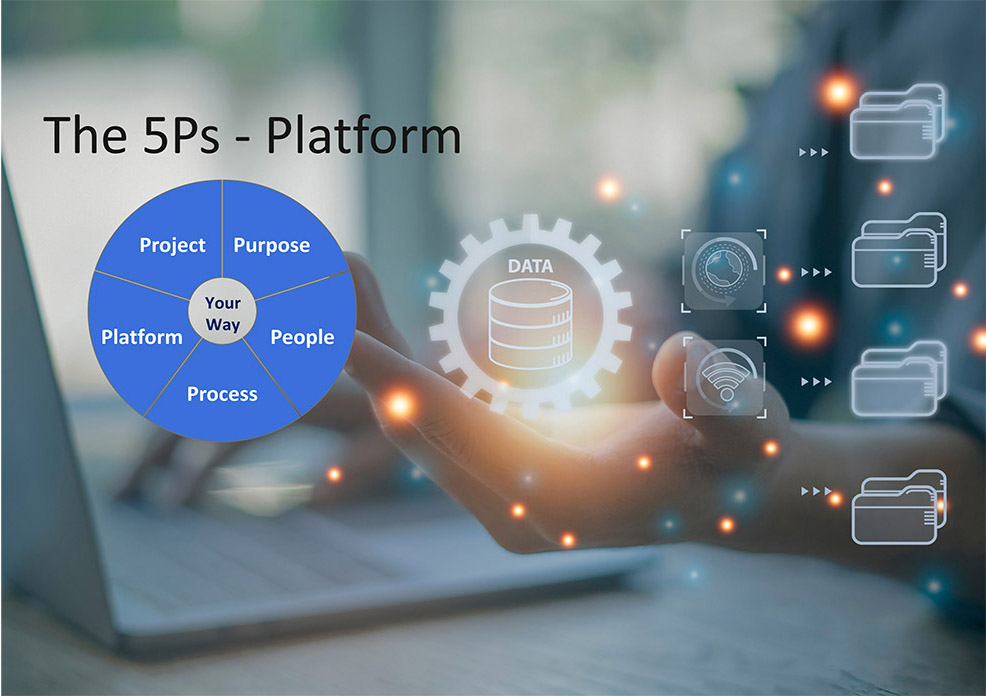Platforms are Process’s enablers. More than just software applications, platforms sit behind every major process and business function that runs a company. New Platforms are often touted by software companies and consulting firms as the cure all to drive change and transformation. New is necessary at times, but don’t rule out your legacy Platforms already in place. Legacy Platforms may be adequate to deliver Purposes intent. While Platforms certainly play their role, remember that People and Process contribute far more to change and transformation outcomes than Platforms.
Platforms are expensive to buy and costly to deploy and maintain. Once in production, Platforms typically are used for a decade or more. Platform examples include:
- Enterprise Resource Planning (ERP)
- Customer Relationship Management (CRM)
- Product Development (CAD, PLM)
- Professional Services
- Customer Service and Contact Center
- Marketing Management
- Web and e-Commerce
- Business Intelligence and Analytics
Form, fit and function is a useful way to look at Platform considerations for your change and transformation journey.
Form – Platforms come in many shapes and sizes. From one to many, simple to complex, low cost to expensive, legacy to new, commercial off the shelve (COTS) to custom developed, purchased or subscribed to. Find the right Platform(s) to operate and grow with your business; obtaining needed functionality in line with affordability. Consider the Platform eco-system too, from vendor/integrator support, skilled resources, third party add-ons and ready-made integrations.
Fit – A pitfall to avoid is letting Platforms dictate Process. Be sure to address Process beforehand to insure a good Platform fit with your business. Platforms need to work effectively within an overall technical architecture of the company. This includes interfacing to other Platforms in use within the company and supporting process integrations with suppliers, partners and customers. Lastly, don’t forget about data. Well thought out master data models and governance are necessary for any Platform, integrations and analytics to work effectively.
Function – Platform functionality accommodating current and future state business process is critical. Company strategy should never be hindered because “our systems cannot do that.” Modern Platforms come standard with best practices already configured. Legacy systems still in use may not and are often heavily customized to support current process. Deciding to use out of the box, standard functionality versus customizing is always a consideration. Determine whether customizations will support any differentiated Processes. If so, they should be considered worthwhile. If not, then serious consideration needs to be given before investing in the development and potential software version lock that customizations portend.
Choose wisely, Platforms are long term decisions and major investments in time and money. Done well, they will support the business objectives for many years. Done poorly, they will hinder change and transformations Purpose, increase costs and reduce employee productivity.
Dave Brady, Turning Point President and CEO
© 2024 Turning Point Consulting


